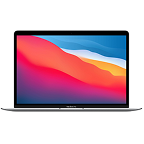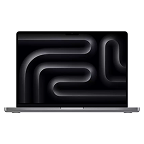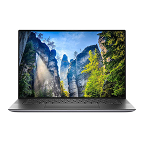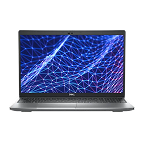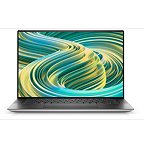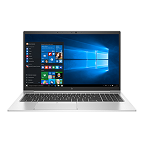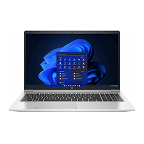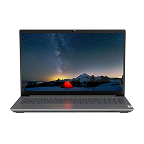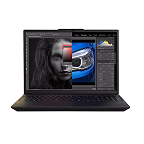
Environmentally Friendly Choice: Second-Hand Laptops
In Germany, different groups of people seek affordable computers for their everyday needs. University students often look for something that will last through semesters of lectures and assignments without stretching their budget. Freelancers and people working from home appreciate saving money too, especially when they need reliable equipment for regular tasks. Choosing a second hand laptop often means striking the perfect balance between affordability and dependable performance in today's digital world.
Environmentally conscious buyers are another key group — to them, choosing a pre-owned device is about reducing waste and making a responsible purchase. At ESA-Tech, we share this approach: our team focuses on extending the life cycle of technology by offering carefully tested and thoroughly cleaned professional-grade computers, restored in our own service center. This philosophy supports sustainability and ensures that every customer receives a fully functional machine with clear specifications and visible cosmetic condition on real photos.
The Demand for Second-Hand Laptops
Over the past decade, the second hand laptop market in Germany has grown quickly, reflecting both practical needs and social responsibility. The desire regarding affordable digital access is now matched by concerns about sustainability and reducing e-waste. According to recent surveys, more and more people are choosing pre-used portable computers instead of new models, especially as electronic waste is becoming a prominent issue.
Retailers report that a large portion of their customers are asking not just about specs or used laptop price, but also about refurbishment processes and eco-friendly policies. This shift is visible in all age categories, from students to professionals. Many buyers see refurbished devices as a smart, sustainable alternative that fits their values and budgets.
At ESA-Tech, we test every product before it reaches the customer: the condition of the screen, keyboard, ports, battery and internal components is thoroughly checked by our service team. Each item is professionally cleaned, restored and sold with full transparency. Every photo on our site shows the real item, including any visible flaws. Some models offer extra value — such as SIM card slots, touchscreens, or 360-degree hinges — features not always found in low-cost new products.
Who Buys Second-Hand Laptops?
The community of people choosing pre-owned tablets or computers in Germany is remarkably diverse. University students often turn to more affordable options due to limited budgets. Their requirements are clear — reliable systems that support studying, internet research, and online exams without overspending. Freelancers and self-employed professionals also appreciate cost-effective tools for daily tasks and remote projects.
In recent years, families with school-aged children have increasingly decided to buy second hand laptop models to support online learning without placing extra financial pressure on the household. Migrants and newcomers often rely on budget-friendly technology while adapting to a new environment, while environmentally conscious buyers view reused electronics as a meaningful step toward more responsible consumption.
Each group has different motivations — but they all value functionality, reliability, and access to technology that fits their needs and principles.
Motivations in Choosing Pre-Owned Electronics
There are several reasons why German shoppers increasingly choose pre-used computers over new ones. For many, the primary factor is saving money — refurbished models offer solid performance at a fraction of the original cost. Others are looking for reliable, older designs that include features often missing from newer releases, such as additional ports or sturdier build quality.
Eco-conscious consumers prefer making a purchase that doesn’t contribute to landfill waste. For them, buying a reused machine feels like a small but meaningful way to support sustainability. More experienced users follow the pre-owned market to find rare models or a previous-generation series at an attractive second hand laptop price. The growing trend toward mindful, value-driven technology consumption makes pre-owned electronics a practical and ethical choice.
Typical Scenarios in Using Used Equipment
Second hand portable computers are used in a wide variety of practical situations. As an example, a student in Berlin may need a computer supporting online seminars, writing essays, and streaming educational content. A freelance designer might look to find an affordable MacBook from the previous generation to use as a travel workstation. Parents with several school-aged children often need multiple computers during online learning. Entrepreneurs or startup founders use used laptops to equip a small team without a huge upfront investment.
Sometimes, adults choose to buy a second hand laptop as a backup device when traveling, or simply to avoid downtime if their primary computer fails. Gift-givers also buy used laptops with warranty at ESA-Tech store when a young family member needs their first computer.
Here are the most common use cases regarding pre-used portable computers in Germany:
- Enabling children to participate in digital classrooms.
- Setting up a productive remote work or freelance office at home.
- Providing backup devices as field engineers, traveling employees, or small teams require.
What to Check Before Buying a Second-Hand Computer
When shoppers wonder where to buy second hand laptop units, the checklist usually goes beyond price or looks. Buyers examine the hardware and ask about the computer's full service history. Checking battery health is particularly important, since battery replacement can affect the final used laptop price and total cost of ownership. It’s also essential to make sure the system is free from visible damage — such as cracked screens, non-functional keyboards, or loose ports.
Buyers should confirm that the software is properly installed, runs smoothly, and does not contain any accounts or data from previous owners. This matters both for system performance and personal security.
A successful pre-owned computer purchase typically comes down to a few key factors:
- Overall condition (case, display, keyboard, trackpad).
- Battery health and cycle count.
- Completeness of set (charger, operating system, accessories).
- Seller's return and warranty policy — especially regarding fast delivery, top service, or extra support.
Technical Inspection
Before considering pre-owned computer equipment, it pays to take a closer look at the technology inside. Start with the storage: a silent, responsive SSD is preferable to older mechanical drives. Ensure the memory (RAM) matches your workflow — with modern tasks, 8GB or more is ideal. Test all USB ports, headphone jacks, and Wi-Fi connectivity. Listen to cooling fans regarding unusual sounds. If possible, check how the system performs under load, such as by opening multiple programs or streaming video, to make sure it runs without delays or overheating.
By following these steps, it becomes easier to find a second hand good condition laptop that meets real performance needs and day-to-day reliability expectations.
Are Second-Hand Laptops Reliable in Long-Term Use?
The reliability of a pre-owned computer depends on several factors: model, age, and how well it was maintained often matter more than the fact that it’s not brand new. Many high-quality models are built for long-term durability, and with proper care, even older systems can continue to perform reliably in daily use.
Customers in Germany report that refurbished systems remain stable and productive for years, especially after simple upgrades like battery replacement, RAM expansion, or switching to a faster SSD. To extend the life of a reused model, users are advised to keep the computer clean, store it properly, and use a surge protector during charging. With these precautions, it’s not unusual for a repurposed machine to deliver solid performance for three to five years — or even longer.
Potential Risks and How to Minimize Them
Of course, any reused technology carries certain risks. There’s always a chance of hidden damage, worn-out components, or buying from an unreliable seller. To reduce such risks, experienced buyers follow a few proven rules when navigating the second hand laptop market.
Here is a practical checklist to protect yourself when shopping for refurbished computers:
- Buy from stores or platforms with a clear reputation, not anonymous individuals.
- Look for used laptops with warranty at ESA-Tech store or a comparable trusted retailer.
- Test or inspect all hardware functions before finalizing a purchase.
Another important concern when acquiring pre-owned equipment is the potential for limited technical support. Unlike new products, repurposed models may no longer be covered by manufacturer service or software updates, which can impact both usability and long-term security. It’s essential to review not only the store’s return policy but also whether they provide technical support after purchase or offer spare parts if repairs are needed.
Customers should carefully examine the system for any signs of previous repair, non-original components, or incompatible batteries that may reduce performance or longevity. Verifying that the specifications match the listing and that the installed operating system is properly licensed helps avoid future issues with updates or compatibility.
Additionally, it’s a good idea to run a full reset or clean installation to eliminate any remnants of previous users or malware. Before completing a purchase, always request documentation about the warranty and confirm how to submit a claim if any defects appear after delivery. These steps significantly reduce the chances of unexpected costs or service interruptions.
Warranty and Return Policies
A solid warranty and transparent return policy are the best protection against unexpected defects. Leading retailers of pre-owned electronics in Germany usually offer at least a short-term warranty covering hardware and essential operation. However, in Germany, it's important to understand the distinction: not all warranties are the same.
ESA-Tech provides buyers with a statutory warranty — a legal requirement under German law. This ensures the product meets the described condition when received. This ensures the product functions as described at the time of purchase. While it differs from a manufacturer’s warranty, it still gives customers protection and confidence in their purchase.
Before buying, it's worth reviewing the store's terms carefully. A reliable seller offers fair conditions and top service in case of issues within the warranty period. Always check which components are covered, how claims are processed, and whether customer support is available if questions arise after delivery.
Choose a trusted supplier of pre-owned electronics: every unit in our collection undergoes thorough inspection, certified data erasure, and full quality control. With transparent policies, clear photos, and fast shipping, buyers can make informed choices and focus on what matters.
How to choose a used laptop: Comparison by tasks, features and brands
| Category | Key Specifications | Suitable for | Examples from ESA-Tech Catalog |
|---|---|---|---|
| Ultrabooks / Thin & Light | Intel Core i5/i7 or Apple M, 8–16 GB RAM, SSD 256–512 GB, 13–14", IPS/OLED, FullHD+ | Travelers, office, students | Apple MacBook Air / Dell XPS / Lenovo ThinkPad |
| Business / Workstation | Intel Core i7/i9 or Xeon, 16–64 GB, SSD 512 GB–1 TB, 15–17", FullHD/2K, (Quadro/RTX) | CAD, complex office work, analytics | Dell Precision / Lenovo (ThinkPad) / HP EliteBook |
| Gaming / High Performance | Intel i7/i9 or Ryzen 7, 16–32 GB, SSD ≥512 GB, dedicated NVIDIA GeForce/RTX | Gaming, video editing, 3D | Models with GeForce RTX (RTX 30xx available in catalog) |
| Budget / Everyday | Core i3 / Ryzen 3–5, 4–8 GB, SSD 128–256 GB, 14–15.6", 1366×768–1920×1080 | School, office tasks, web surfing | HP ProBook / Lenovo ThinkBook / Dell Latitude |
| Apple / Creative | Apple M1 / M1 Pro, LPDDR, Retina 13–16", high resolution | Design, editing, Apple ecosystem | MacBook Air / MacBook Pro |
| Compact / School | 11.6"–13.3", 4–8 GB, SSD 64–256 GB | Students, mobility | Small notebooks from various brands |
“Choose the category depending on your needs: Ultrabook – for mobility, workstation – for resource-intensive tasks, gaming laptop – for gaming and video editing. Select RAM and SSD according to your budget and requirements.”
Quick guide to our laptop assortment
| Parameters | Key Specifications of Laptops |
|---|---|
| Brands | Apple, Dell, Fujitsu, HP, Lenovo, Microsoft, Toshiba. |
| CPU families | Core Ultra, Core i3/i5/i7/i9, M / M1, Pentium, Ryzen 3/5/7, Xeon. |
| CPU generations | 10th–13th Gen Intel, M1, 2000/3000/… series (many variants in catalog). |
| Screen (resolutions) | 1280×800, 1366×768, 1920×1080, 2560×1440, up to 3840×2160. |
| Diagonals | 11.6", 13.3"–16.0", 17.3". |
| Panel type | IPS, OLED, ADS, TN. |
| RAM (type/size) | DDR3/DDR4/DDR5/LPDDR3/4/5; 4–64 GB (commonly 8–16 GB). |
| SSD | 64 GB — 1 TB (popular: 256–512 GB). |
| GPU | Intel Integrated, AMD Radeon, NVIDIA GeForce / Quadro / RTX. |
| Keyboards | DE, US, UK, UK/RU, NORDIC, etc. |


